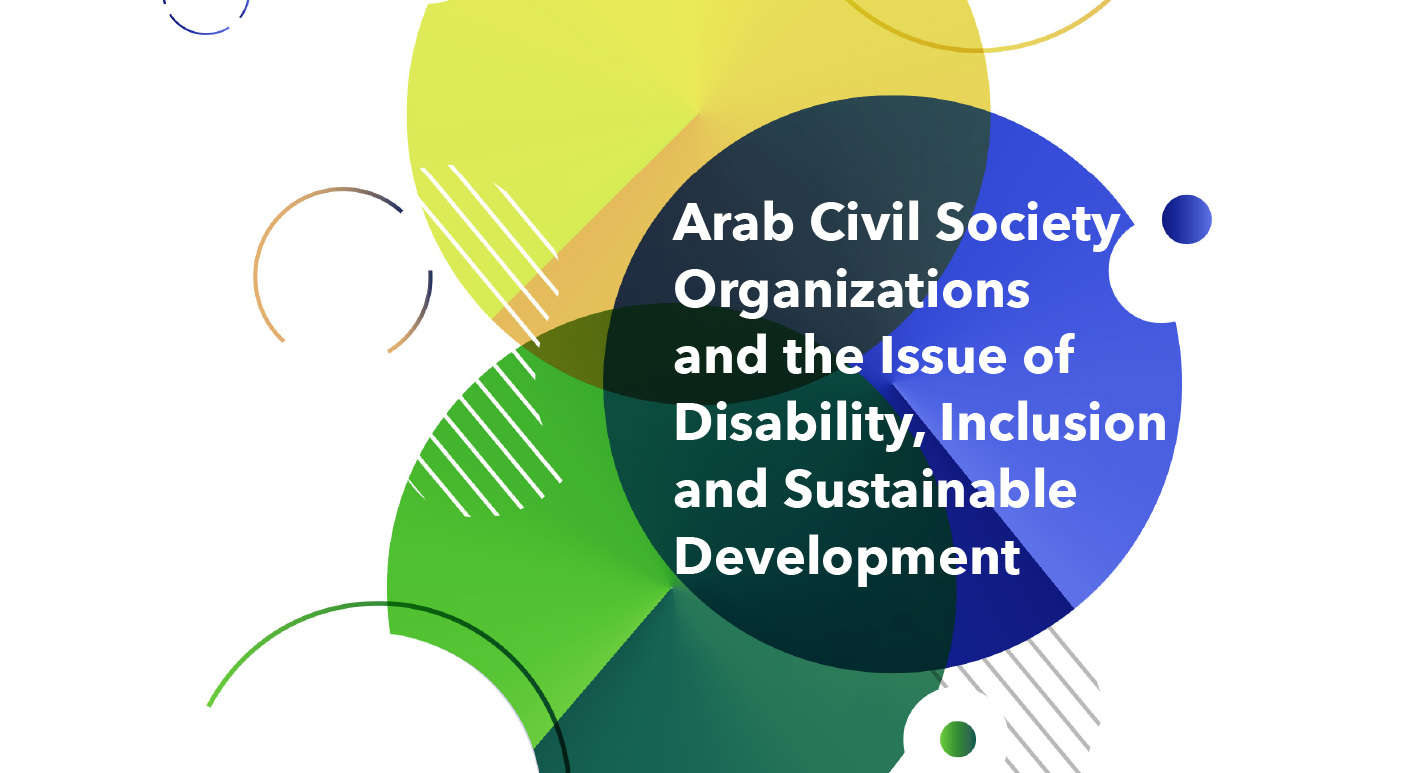
Arab Civil Society Organizations and the Issue of Disability, Inclusion and Sustainable Development
Arab Civil Society Organizations and the Issue of Disability, Inclusion and Sustainable Development - Click here to read the full research.
Prepared by: Prof. Ahmad Barkia and
Dr. Mohammed Ali Loutfy
Foreword
During the past decade, significant developments have been made in addressing social and economic inclusion issues at civil society and the international community level. This coincided with increasing human rights demands and pressure by organizations representing marginalized groups worldwide. The adoption of the 2030 Agenda for Sustainable Development in 2015 by the UN General Assembly, followed by the approval of a set of relevant and specialized frameworks, shed further light on such issues. Addressing social and economic inclusion within these reference frameworks came after a long period of struggle marked by several milestones and achievements, most notably, the UNGA's unanimous adoption of the Convention on the Rights of Persons with Disabilities (CRPD) in 2006 , which came into effect in 2008. Undoubtedly, all these conventions and frameworks adopted a human rights development approach and have had a profound impact in bringing about significant transformation in civil society organizations (CSOs) activities and programs in many countries, including several countries in the Arab world.
However, after nearly six years, i.e., more than one-third of the period specified for achieving the 2030 Agenda, this transformation has barely translated into action and remained along the lines of speeches and slogans rather than reflecting the aspired change or translating into reassuring indicators of the progress made towards fulfilling the main principle of the 2030 SDGs: "To leave no one behind." Perhaps the most conclusive evidence that this transformation remains incomplete is the ongoing and increasing marginalization and exclusion of vulnerable segments of society, especially after the outbreak of Covid-19. Persons with disabilities are uncontestably mostly marginalized and excluded from decision-making processes and transparent participation in policies and programs, thus condemning them to be left behind on the path towards development.
CSOs in the Arab world have assumed a key role in ensuring that no one is left behind and have spared no effort to make sure that disability issues are reflected in policies and programs that are more comprehensive and inclusive of the rights of persons with disabilities in line with the sustainable development goals and targets. In this context, this brief paper aims to shed light on the overall course of action and circumstances affecting their efforts in this regard by examining the following aspects:
• The general framework of economic and social inclusion;
• The 2030 Agenda for Sustainable Development, which mainly provides for the integration of disability issues, in line with the provisions of the Convention on the Rights of Persons with Disabilities (CRPD);
• An analysis of the most critical structural and strategic elements defining the extent to which disability issues and the rights of persons with disabilities shall be integrated into civil society organizations' initiatives that push forward the progress towards the 2030 Sustainable Development Goals;
• The conclusions and recommendations would help activate the participation of persons with disabilities in Arab civil society initiatives demanding economic and social inclusion through policies and programs concerned with implementing the 2030 Agenda for Sustainable Development goals by Arab governments.
Click here to read the full research
Prepared by: Prof. Ahmad Barkia and
Dr. Mohammed Ali Loutfy
Recent publications

